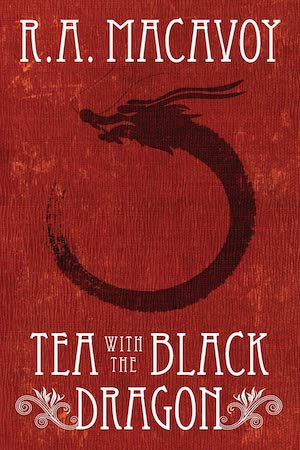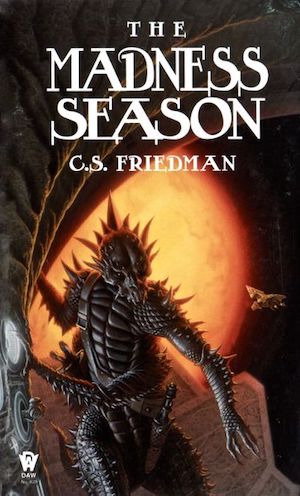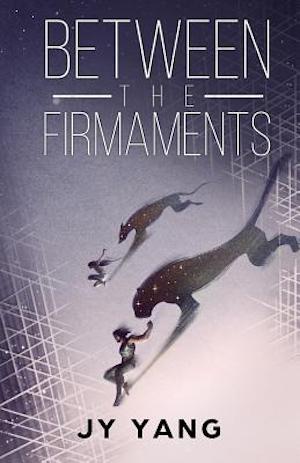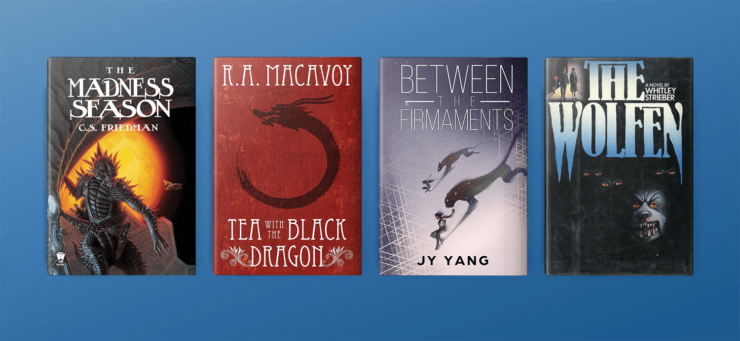Neighbours! Fine people, right up to the moment when they are overcome by xenophobia and assemble in a large mob (shouty), all too well supplied with torches (lit) and implements (agricultural). Of course, not all people are prone to hateful prejudice and fear against outsiders. Some might go the other way, lavishing unwanted adoration and attention on unusual people. It’s awkward either way, which is reason enough for some folks to carefully conceal their true nature. Such as these five…
In P.J. Plauger’s 1975 Hugo-and-Nebula-finalist short story, “Child of All Ages,” Melissa seems to be nothing more than a poorly behaved schoolgirl. In fact, as she admits to her guidance counsellor Meg, Melissa is twenty-four centuries old. Her apparently childlike visage is a side-effect of the means by which her life has been so greatly extended. Her classroom behavior is rooted in her unwillingness to listen quietly to modern takes on eras through which she has lived. Her presence in the classroom continues because Melissa looks like a child, and an apparent child behaving in unchildish ways would attract unwelcome attention. Meg offers Melissa a place in her household. It’s a kind offer but one ultimately doomed by the gulf between mortal and the ageless. But if there’s one thing outliving various civilizations has taught Melissa, it is when to move on.
***

Whitley Strieber’s 1978 The Wolfen begins with a mundane police investigation: Detectives Becky Neff and George Wilson set out to solve the violent deaths of two colleagues. They would have been best advised not to try. The deaths that Neff and Wilson are investigating are two of a great many—deaths carried out by canid predators far smarter than mere dogs or wolves. The wolfen are canny enough to know which humans they can kill without consequence—our inhumanity to other humans lays out a smorgasbord for their delectation. They are also smart enough to know when they are being hunted. Solution: eliminate anyone who may have stumbled over proof of their existence. People like Neff and Wilson.
***

R.A. MacAvoy’s 1983 Tea with the Black Dragon also begins as an apparently straightforward mystery. Martha Macnamara arrives in San Francisco, concerned for her daughter Liz’s wellbeing…as well she might be, since Liz has made what are called “poor life decisions” and there are some very unpleasant men looking for her. Martha is too good at snooping for her own good. Having convinced the folks hunting Liz that she knows too much, Martha is vanished—and the book pivots to Liz searching for her mother.
Unfortunately for the criminals, between arriving in San Francisco and getting kidnapped, Martha has befriended the ever-so-mysterious Mayland Long. Long is many things—Asian, a would-be philosopher, charming, good with computers—but most importantly he is an ancient dragon. Kidnapping a woman to whom he has become very closely attached is a terrible mistake.
***

In C. S. Friedman’s 1990 The Madness Season, Earth has for three centuries been under alien Tyr rule. Daetrin does his best not to attract alien attention for fear the conquerors will ask awkward questions, such as how it is that Daetrin has not aged a day in centuries, what the precise nature of his very special dietary needs might be, or why he has such an aversion to direct sunlight. The downside to immortality is that one has more time to get unlucky. In Daetrin’s case, his bad luck gets him detained and shipped off planet in an alien starship.
The Tyr believe they are simply removing a potentially disruptive element from Earth. What they are actually doing is moving Daetrin from a planet on which he was safely sequestered to worlds where he might meet other immortal entities. Entities unlike him in many ways save for one: a shared desire to break the power of the Tyr.
***

As JY Neon Yang’s 2018’s Between the Firmaments opens, Bareigh the Hunter is careful to hide their godhood. Bareigh was once worshipped; now they are hiding from the Blasphemer invaders, who capture and exploit the gods, turning them into fuel for their machines. Mortal life is humiliating, even taxing…but it’s better than the alternative. Bareigh has a motive beyond self-preservation: they need to keep an eye on great-great-grandniece Sisulo, who has no inkling that she has divine blood in her veins.
Visiting god Sunyol is attractive, irresistible, and (like Bareigh) conceals great power beneath a seemingly mortal shell. He hasn’t been conditioned by centuries of oppression to submit to imperialist exploitation. If he’s pressed hard enough, he will act out against the occupiers. Too bad that he’s just as vulnerable to the Blasphemers sunmetal as any other god.
***
That’s that for the now-canonical five examples. I am certain that there are a great many books that I could have mentioned instead of the ones I chose, and that you are going to tell me about them in comments.
In the words of Wikipedia editor TexasAndroid, prolific book reviewer and perennial Darwin Award nominee James Davis Nicoll is of “questionable notability.” His work has appeared in Publishers Weekly and Romantic Times as well as on his own websites, James Nicoll Reviews and Young People Read Old SFF (where he is assisted by editor Karen Lofstrom and web person Adrienne L. Travis). He is a four-time finalist for the Best Fan Writer Hugo Award and is surprisingly flammable.










